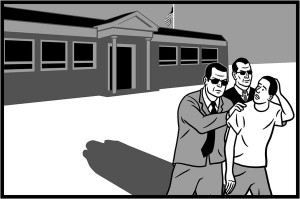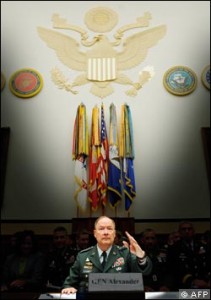
Respected media outlets collaborate with WikiLeaks (NewsMeat)
WikiLeaks turned over all of the classified State Department cables it obtained to Le Monde, El Pais in Spain, The Guardian in Britain and Der Spiegel in Germany. The Guardian shared the material with the New York
Times, and the five news organizations have been working together to plan the timing of their reports.
They also have been advising WikiLeaks on which documents to release publicly and what redactions to make to those documents, Kauffmann and others involved in the arrangement said.
WikiLeaks switches to Swiss domain after attacks (NewsMeat)
Wikileaks was forced Friday to switch over to a Swiss domain name,
wikileaks.ch, after a new round of hacker attacks on its system prompted its American domain name provider to withdraw service.
WikiLeaks' U.S. domain name system provider, EveryDNS, withdrew service to the wikileaks.org name late Thursday, saying it took the action because the new hacker attacks threatened the rest of its network.
“Wikileaks.org has become the target of multiple distributed denial of service attacks. These attacks have, and future attacks would, threaten the stability of the EveryDNS.net infrastructure,” EveryDNS said in a statement.
Phi Beta Iota: The first story represents the emergence of hybrid governance and hybrid capabilities networks that will over time displace the inherently corrupt hierarchical stovepipes of the Industrial “Rule by Secrecy” era. The second story represents both the emergence of jackals in cyber-space, attacking “because they can,” and the abject failure of both the Internet Service Providers (ISP) and the US Government to provide order, discipline, and security in cyberspace. We recommend that WikiLeaks seek severe financial damages from both Amazon and EveryDNS–both have failed to be honest and diligent. At the same time, this is an opportunity: any country, such as Chile, that can integrated unlimited low-cost renewable energy, massive data storage & services, and multinational intelligence, all in a cyber-cocoon of absolute confidence immune to attack, will bury the US and EU ISP and telecommunications industries.
Reference: Bruce Schneier on Cyber War & Cyber Crime
Journal: Cyber-Heist 2nd Generation
Journal: Pentagon Network Attacks–Cloud Truth?
Journal: Who Controls (and Secures) the Internet?
Journal: US Research & Development in the Toilet
Journal: Army Industrial-Era Network Security + Cyber-Security RECAP (Links to Past Posts)







